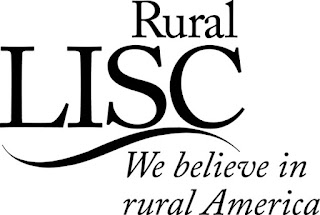In 1995, a core group of 52 community development corporations from 39 states convened in Maine to launch a four-year national initiative headed by the Local Initiatives Support Corporation (LISC). Aimed at addressing the unique needs of rural community development corporations and strengthening rural community development by providing the capital, strategy, advocacy and network to connect rural groups to one another, that initiative has evolved into Rural LISC, one of the nation’s leading rural housing efforts dedicated to providing support to rural communities.
The National Housing Conference is pleased to honor Rural LISC with the 2016 Housing Visionary Award for its comprehensive approach to strengthening communities throughout rural America. Through its five-point mission to expand investment in housing and other real estate, increase family income and wealth, stimulate economic development, improve access to quality education and support healthy lifestyles and environments, Rural LISC has been successful in transforming communities in over 1,400 counties across 42 states. With investments totaling over $3 billion, Rural LISC has supported the development of over 29,000 affordable homes and 550 small businesses, creating 6,250 jobs and 3.2 million square feet of commercial and community facilities. It has convened 25 national training and networking seminars for its community development corporation partners, and 24 regional workshops for nearly 1,850 participants.
“Rural LISC values partnership and wants to be a real asset to its partners, helping with problem solving and being there to celebrate successes,” according to Rural LISC Program Vice President Suzanne Anarde. She adds that “synergy is a critical element,” and this synergy and dedication to partnership is what has elevated Rural LISC as a leading provider of services, training, technical assistance, information and financial support to rural community development corporations around the country. Rural LISC has also been successful over its 21-year history in creating a deeper understanding of rural housing needs and of rural communities as a whole – both on Capitol Hill and across the media, philanthropy and wider cultural landscape.
Dee Davis, president and founder of the Center for Rural Strategies, has worked with Rural LISC to create strategic media documenting the organization’s work to rebuild communities while capturing the aspiration and triumph of rural community development. “Rural LISC [is] very forward-thinking in the rebuilding process and is not afraid to invest in marginal communities,” he said. This dedication to capacity-building and investment in the work of community development corporations in small, rural communities has enabled organizations like the Boys, Girls, Adults Community Development Center in Marvell, Arkansas, to cater to the various needs—affordable housing, economic development, community revitalization and more—of its community.
“With the support for Rural LISC, [Boys, Girls, Adults] has been able to do a lot more work around housing. Rural LISC provides funding to us to support our efforts to increase access to affordable housing among our lowest-income residents,” said Boys, Girls, Adults Executive Director Beatrice Clark Shelby. Rural LISC has been instrumental in helping Boys, Girls, Adults cultivate its civic engagement efforts and sustain affordable housing in the community, work that has also been successful in numerous other rural communities around the country.
Anarde, Rural LISC’s leader since 2013, hopes that people will understand that whether in urban or rural communities, people—and affordable housing needs—are more alike than they are different. “This is not an urban vs. rural thing,” she says emphatically. “Rural and urban [housing] are very much alike, in terms of goals. We all want to get to the same place. The messaging and tools may be different, but we all want affordable housing for all.” It’s this spirit of unity that invigorates the affordable housing movement, no matter where we work.


